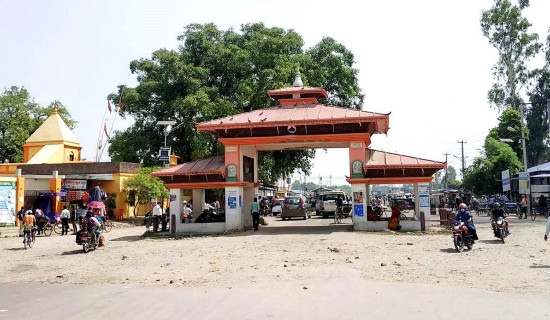- Thursday, 26 February 2026
Complete Transitional Justice Process
The transitional justice process has been delayed by almost 16 years. When the Comprehensive Peace Accord (CPA) was signed between the then government and Maoists in November 2006, it was mentioned, among others, that the peace process, including the transitional justice process, would be logically completed within six months. This aroused hope among conflict victims or their families that they would get justice soon. However, nothing was done during the six months. Rather, it took eight years even to formulate the Act on the Commission on Investigation of Disappeared Persons, Truth and Reconciliation, 2014. In accordance with the act, the Truth and Reconciliation Commission (TRC) and the Commission for Investigation of Enforced Disappeared Persons (CIEDP) were formed in 2015.
With the formation of these commissions, a ray of hope re-emerged among the conflict victims and their families that they would get justice even if it was too late. Then, the TRC collected complaints from the conflict victims or their families. Over 60,000 complaints have been collected so far, out of which around 3,200 cases have been lodged with the CIEDP. It is an irony that the cases have remained pending, with no action taken on them.
Frustration
Inordinate delays in concluding the transitional justice process have frustrated not only the conflict victims and their families but also the international community. The Human Rights Watch, a global human rights watchdog, has expressed concerns over the prolonged transitional justice process in its 2023 report. In fact, the international community has been urging successive governments to bring the transitional justice process to a logical end. But neither the governments nor political parties and leaders seem to be interested in concluding the transitional justice process.
During the decade-long Maoist insurgency (1996-2006), as many as 17,000 people were killed, thousands were maimed and tens of thousands were displaced. It is reported that there were gross human rights violations from both the insurgents and the state. Tortures, rapes and other sexual violence, confiscation or destruction of property, lootings, extortions, kidnappings, enforced disappearances, recruitment of child soldiers and the like were rampant during the insurgency. Once it was proposed to include an amnesty clause in the transitional justice laws. However, the Supreme Court and the international community objected to this in strong terms. It would be unfair to pardon gross violations of human rights and war crimes. The amnesty clause was designed to protect both the state and Maoist leaders from prosecution for gross human rights violations perpetrated during the Maoist insurgency.
The transitional justice process lingering for long may be ascribed to lack of political will. Political leaders include both the state and Maoist leaders. They are preoccupied by other affairs such as how to come to power or how to dismantle governments. Funding may also be something to be considered. The conflict victims and their families should receive reparations or some form of assistance. The funds will have to be managed by any means. There is lack of trained manpower to effectively deal with conflict-era cases. The conflict victims or their families are voicing concern about whether they will get justice or not but they do not seem to have received public support.
It is imperative to conclude the transitional justice process. This will resolve past human rights violations cases. The conflict victims or their families are disgruntled with the government. Their relations with the state have grown sour, which is not a good omen. The government and the people should work hand in glove for development. If human rights violations cases are resolved now, such violations may not recur in the future. And a more stable and peaceful society will come into existence.
At a time when the transitional justice process is moving at a snail’s pace, nine parties have vowed to complete the remaining tasks of the transitional justice process. They have said that they are determined to achieve lasting peace, good governance, development and prosperity. The National Human Rights Commission (NHRC) has also urged the government and the bodies concerned to conclude the transitional justice process and demanded amendments to the transitional justice-related act and formation of commissions as per the verdicts of the Supreme Court, suggestions given by it and international standards.
Scars of insurgency
It is good news that the parties have decided to register a bill to amend the transitional justice-related act in parliament as per the relevant constitutional provisions, the decisions made by the Supreme Court, the conflict victims’ or their families’ sentiments and international standards. Prolonging the transitional justice process for years is not fair. The scars of the Maoist insurgency are still fresh in the minds of the conflict victims or their families. Those who were killed during the insurgency are gone but those who were maimed or crippled are living a painful life. And those whose family members were killed or made to disappear are struggling for survival. That is why the conflict victims or their families have been clamouring for justice for years.
It is obvious that as the international community is watching the country, the transitional justice process must be brought to a logical conclusion. The recent willingness of the political parties to conclude the transitional justice process is praiseworthy. However, this should not be a nine days’ wonder as in the past. If the transitional justice process is concluded with victim-centric provisions, the country will, no doubt, receive international recognition and there will also be more harmony and peace in society as a result of good relations restored between the government and the conflict victims or their families.
(Maharjan has been regularly writing on contemporary issues for this daily since 2000.)
















